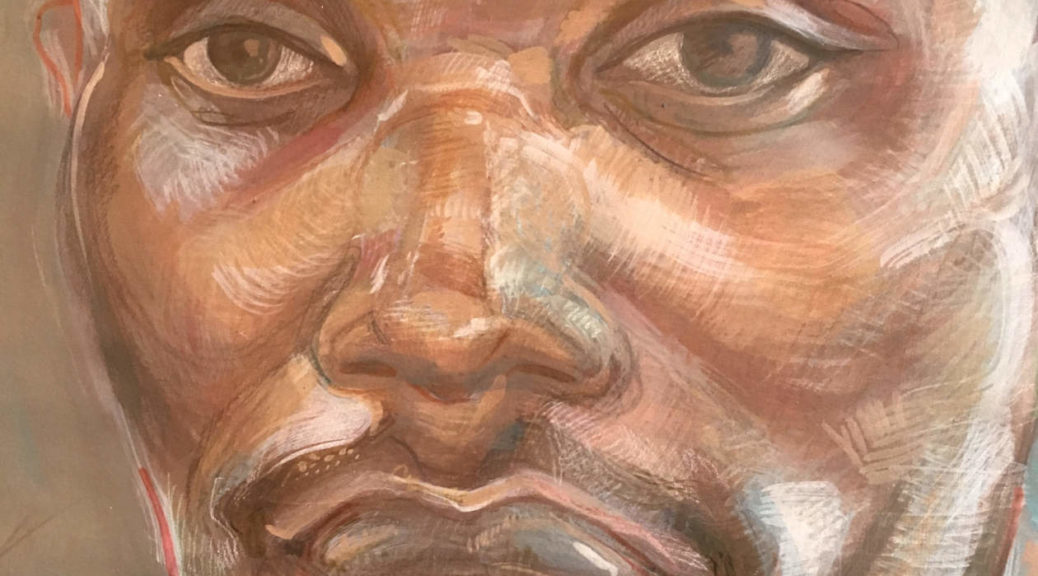Imagine a Goodwill tucked inside an elementary school, with the energy of a Cairo airport gate. That’s the scene, on busy days, at IRIS, the refugee resettlement agency where I work in New Haven. The downstairs donation space overflows with coats; lamps stand over stacks of pots, pans, and bassinets. Upstairs, refugees from the Middle East and Africa bustle about the hallway with cups of tea and paperwork. Along the walls are world maps and local bus routes, kids’ drawings of airplanes and stars, flashcards for the US citizenship exam.
Working with refugees is unsettling sometimes. Knowing who survived genocide only to get hit by a car, who has trouble eating when he thinks about his mom not having food back home, whose sister tried to get to Europe on a raft—it undoes you sometimes.
Over the last two years, refugee resettlement work has gotten tougher. In 2017, President Trump’s “travel ban” blocked visitors and migrants from a number of Muslim-majority countries and temporarily halted the admission of refugees altogether. The US refugee resettlement program is now operating again, but the Trump administration has taken other, less publicized steps to undermine it—most recently, setting a record-low cap on admissions of just 30,000 refugees for 2019, less than a third of the annual average since 1980.
Continue reading I’ll Jump When I See Them
Ashley Makar Ashley Makar is the community liaison at Integrated Refugee & Immigrant Services (IRIS). Her writing has appeared in the Washington Post, Tablet, and Killing the Buddha.
- Follow us on Twitter: @inthefray
- Comment on stories or like us on Facebook
- Subscribe to our free email newsletter
- Send us your writing, photography, or artwork
- Republish our Creative Commons-licensed content

